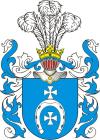ใครออกเดทกับ Stanislas II?
Izabela Czartoryska วันที่ Stanislas II จาก ? ถึง ?. ช่องว่างอายุ 14 ปี 1 เดือน 14 วัน.
จักรพรรดินีเยกาเจรีนาที่ 2 แห่งรัสเซีย วันที่ Stanislas II จาก ? ถึง ?. ช่องว่างอายุ 2 ปี 8 เดือน 15 วัน.
Magdalena Agnieszka Sapieżyna วันที่ Stanislas II จาก ? ถึง ?.
Elżbieta Szydłowska วันที่ Stanislas II จาก ? ถึง ?.
Stanislas II

Stanislas II (en polonais : Stanisław August), de son vrai nom Stanisław Antoni Poniatowski, né le à Wołczyn (actuelle Biélorussie) et mort le à Saint-Pétersbourg, est, de 1764 à 1795, le dernier roi de Pologne et grand-duc de Lituanie, à l'époque de la République des Deux Nations.
Selon la titulature officielle, il est « par la grâce de Dieu et la volonté du peuple, roi de Pologne, grand-duc de Lituanie et duc de Ruthénie, Prusse, Mazovie, Samogitie, Kiev, Volhynie, Podolie, Podlasie, Livonie, Smolensk, Siewierz et Czernihów. »
Son règne a connu bien des vicissitudes. En 1762, son ancienne maîtresse, la princesse russe d'origine allemande Catherine, née Sophie Frédérique Augusta d'Anhalt-Zerbst, devient impératrice de Russie sous le nom de Catherine II. En 1764, après la mort d'Auguste III, Poniatowski est élu roi de Pologne en tant que candidat de la Russie et de la famille Czartoryski, qui est favorable à l'alliance étroite de la Pologne avec la Russie. Celle-ci, secondée par la Prusse, joue un rôle important au début du règne de Stanislas II, par le biais de son ambassadeur à Varsovie Nicolas Repnine.
La révolte d'une partie de la noblesse hostile à la Russie, liguée dans la confédération de Bar (1768-1772), aboutit au premier partage de la Pologne (1772). Stanislas II, maintenu sur le trône du fait de la défaite des confédérés, s'efforce alors de promouvoir un certain nombre de réformes, dont on peut citer la création de la Commission de l'Éducation nationale (1773), dans la limite de ce que son protecteur russe peut accepter.
Mais à la fin des années 1780, le mouvement de réforme prend une telle ampleur, à l'époque de la Grande Diète (1788-1792), qu'elle suscite l'hostilité de la Russie, dirigée par Catherine II jusqu'en 1796 : la promulgation de la Constitution du , la première en Europe, est l'origine directe de la guerre russo-polonaise de 1792, dont la suite est le deuxième partage de la Pologne (1793) et la soumission de Stanislas au parti pro-russe de la confédération de Targowica. En 1794, Stanislas apporte toutefois un certain soutien à l'insurrection dirigée par Tadeusz Kościuszko contre la Russie. Sa défaite aboutit au troisième partage de la Pologne en 1795 : privée de la totalité de son territoire, la république des Deux Nations cesse d'exister et Stanislas est contraint d'abdiquer, pour aller finir sa vie à Saint-Pétersbourg, au début du règne de Paul Ier.
อ่านเพิ่มเติม...Izabela Czartoryska

Izabela Czartoryska, née Flemming le à Varsovie, et morte le à Wysocko, est une princesse polonaise, salonnière, écrivain, mécène, collectionneuse d'œuvres d'art, créatrice des jardins anglais à Powązki et Puławy, fondatrice du premier musée en Pologne.
อ่านเพิ่มเติม...Stanislas II

จักรพรรดินีเยกาเจรีนาที่ 2 แห่งรัสเซีย

จักรพรรดินีเยกาเจรีนาที่ 2 หรือ ซึ่งทรงได้รับการถวายพระราชสมัญญาว่า เยกาเจรีนามหาราชินี หรือพระนามเดิมคือ โซฟี เอากุสเทอ ฟรีเดอรีเคอ แห่งอัลฮัลท์-แซบสท์ (เยอรมัน: Sophie Auguste Friederike von Anhalt- Zerbst; 2 พฤษภาคม ค.ศ. 1729 – 17 พฤศจิกายน ค.ศ. 1796) ทรงเป็นเจ้าหญิงชาวเยอรมันโดยกำเนิด และต่อมาได้อภิเษกเข้าสู่ราชวงศ์รัสเซีย ต่อมาได้ขึ้นครองราชสมบัติรัสเซียต่อจากพระสวามี พระองค์ทรงเป็นจักรพรรดินีมีชื่อเสียงและครองราชย์ยาวนานที่สุดของรัสเซีย ทรงขึ้นครองราชย์หลังจากการรัฐประหารและการปลงพระชนม์จักรพรรดิปิออตร์ที่ 3แห่งรัสเซียพระราชสวามีของพระองค์เอง (ไม่นานหลังจากการสิ้นสุดของสงครามเจ็ดปี) จนกระทั่งเสด็จสวรรคต การปกครองของพระองค์เป็นการอธิบายถึงการเป็น พระประมุขผู้ทรงภูมิธรรม (enlightened despot) ทั้งยังทรงฟื้นฟูจักรวรรดิรัสเซียให้แข็งแกร่งและมีอาณาเขตกว้างกว่าเดิมอย่างที่ไม่เคยเป็นมาก่อน จนรัสเซียกลายมาเป็นชาติมหาอำนาจที่สำคัญมากที่สุดชาติหนึ่งในยุโรปในยุคนั้น
ในการเข้าถึงขุมอำนาจและปกครองจักรวรรดิของพระองค์ พระนางเยกาเจรีนา มักจะทรงพึ่งพาอำนาจจากเหล่าขุนนางที่ทรงโปรดปราน และผู้ที่มีชื่อเสียงมากที่สุดเช่นกริกอรี ออโลฟ และกริกอรี โปเตมคิน หรือเหล่านายพลผู้มีอำนาจบารมีสูงเช่น ปิออตร์ รูเมียนเซฟ และอะเลคซันดร์ ซูโวรอฟ หรือแม้แต่พลเรือเอกเช่น ฟิโอดอร์ อูชาคอฟ พระนางปกครองรัสเซียในช่วงเวลาที่จักรวรรดิได้ทำการแผ่ขยายอาณาเขตของตนโดยทั้งการศึกสงครามและการทูต ทางทิศใต้, อาณาจักรข่านแห่งไครเมียร์ถูกบดขยี้และตามมาด้วยชัยชนะเหนือจักรวรรดิออตโตมันในสงครามรัสเซีย-ตุรกี ต่อมารัสเซียได้ทำการเข้ายึดครองดินแดนอันว่างเปล่าแห่งโนโวรอสซิยาตลอดจนชายฝั่งทะเลดำและทะเลอะซอฟ ทางทิศตะวันตก, เครือจักรภพโปแลนด์-ลิทัวเนียซึ่งถูกปกครองโดยอดีตคนรักของพระนาง พระเจ้าสตาญิสวัฟที่ 2 เอากุสตุส ปอญาตอฟสกี ในที่สุดก็ถูกแบ่งแยกออกจากกันโดยรัสเซียได้ส่วนแบ่งของดินแดนมากที่สุด ทางทิศตะวันออก, รัสเซียเริ่มเข้ายึดครองอะแลสกาในรูปแบบของอาณานิคมจนนำไปสู่การก่อตั้งอเมริกาของรัสเซีย
พระองค์ทรงทำการปฏิรูประบบราชการภายในของเขตกูเบอร์นิยา รวมไปถึงมีรับสั่งให้สถาปนาเมืองและหมู่บ้านขึ้นมากมาย และในฐานะที่ทรงเป็นผู้นิยมชมชอบพระราชกรณียกิจของจักรพรรดิปิออตร์ที่ 1 แห่งรัสเซียพระองค์จึงได้ดำเนินพระราโชบายตามแนวทางของจักรพรรดิปิออตร์ที่ 1แห่งรัสเซียโดยการปฏิรูปรัสเซียให้เข้าสู่ความทันสมัยตามแบบฉบับชาติยุโรปตะวันตก อย่างไรก็ตามการเข้ารับราชการในกองทัพและระบบเศรษฐกิจของประเทศยังคงต้องพึ่งพาระบบทาสอยู่ต่อไป ในขณะที่ความต้องการใช้แรงงานของประเทศและของเหล่าผู้ครอบครองที่ดินเพิ่มสูงขึ้นอย่างต่อเนื่อง ส่งผลให้การใช้แรงงานทาสดำเนินไปถึงขั้นกดขี่แรงงานทาส และระบบทาสดังกล่าวก็เป็นหนึ่งในเหตุผลประการสำคัญของการก่อกบฏหลายต่อหลายครั้ง ดังเช่นกบฏปูกาเชฟที่มีกองทหารม้าและชาวนาจำนวนมากมายเข้าร่วมการกบฏ
ตลอดระยะเวลาในการครองราชย์หรือ สมัยเยกาเจรีนา ถูกพิจารณาว่าเป็นยุคทองของจักรวรรดิรัสเซียและของระบอบสมบูรณาญาสิทธิราชย์ในรัสเซีย แถลงการณ์ว่าด้วยเสรีภาพของขุนนางซึ่งเป็นที่โต้แย้งกันในรัชสมัยของจักรพรรดิปีเตอร์ที่ 3 ก็ได้รับการยินยอมในช่วงรัชสมัยของพระนางเยกาเจรีนา โดยแถลงการณ์ฉบับนี้ได้ให้อิสรภาพแก่บรรดาขุนนางไม่ต้องตกอยู่ภายใต้อำนาจของกองทัพหรือการรับราชการสนองคุณประเทศ ให้อิสรภาพในการครอบครองที่อยู่อาศัย เช่น แมนชันรูปแบบคลาสสิก โดยรูปแบบสถาปัตยกรรมดังกล่าวเป็นที่นิยมและได้รับการสนับสนุนโดยพระนางเจ้าเยกาเจรีนาอย่างมาก ก่อให้เกิดตึกรามบ้านช่องอันหรูหราขึ้นจำนวนมาก ซึ่งตลอดช่วงการครองราชย์ของพระองค์ได้ทรงทำให้โฉมหน้าของประเทศเปลี่ยนไปอย่างสิ้นเชิง จึงกล่าวได้ว่ารัชสมัยของพระนางคือยุคเรืองปัญญาของรัสเซียก็ว่าได้
อ่านเพิ่มเติม...Stanislas II

Magdalena Agnieszka Sapieżyna

Magdalena Agnieszka Sapieżyna (1739-1780), was a Polish aristocrat. She was known as the mistress of King Stanisław August Poniatowski and had a child with him, Michał Cichocki, in 1770.
อ่านเพิ่มเติม...Stanislas II

Elżbieta Szydłowska

Elżbieta Szydłowska, married surname Grabowska (1748 – 1 June 1810), was a member of the Polish nobility, a mistress and possibly the morganatic wife of the last King of Poland, Stanisław August Poniatowski.
อ่านเพิ่มเติม...